Tomorrow night, October 24, the Hijri New Year, also known as The Islamic New Year (Arabic: رأس السنة الهجرية Ras as-Sanah al-Hijriyah) begins. The date of the New Year is determined by the position of the moon. The first sighting of the lunar crescent determines the day and time. It marks the day that Mohammad migrated from Makkah to Medina. Although not considered as a major holy day by many Moslems it does reflect the struggle that Mohammed went through to defend his conviction that there is only ONE G-D or ALLAH. The Islamic New Year is observed in different was by Moslems in different countries and different Islamic cultures. Some Muslims fast during the day. Others reflect on a New Year and on Mohammad.
Earlier this month Muslims around the world celebrated one of their holiest of holy days. On October 4 of this year this holy day of Eid-ul-Adha was celebrated to commemorate their belief in Abraham’s willingness to follow God’s command to sacrif
- Joel Bhuiyan, his family and friends celebrating Eid-ul-Adha Left to right: Shabil Billah, Nayeem Alam, Joel Bhuiyan, Asem Qadeer, Ricky Qadeer, Jennifer Bhuiyan
- L-R Nayeem Alam, Joel Bhuiyan, Shabbir Chaudhury, Mohammed Bhuiyan
- Some of the many food celebrating Eid
- Praying and thanking Allah
- Ready to pray
- Ready to pray on Eid-ul-Adha
ice his son Ishmael, and Ishmael’s consent to being sacrificed. But at the very moment that Abraham raised the knife, Allah told him to stop — they had passed the test — and to replace Ishmael with a sacrificial ram. In the Quran, Abraham is rewarded for his faith with a second son, Isaac. It is interesting to note that in Judaism the Torah relates that it was Isaac who Abraham was commanded to sacrifice. The Torah specifically says it was Isaac. The Quaran does not name the son. Thirty-eight of Mohammad’s companions stated that the boy was Isaac. Regardless, the holy day and both interpretations are to show Abraham’s commitment to G-D or Allah.
The other holy of holy days is Eid-Ul-Ftr. This day celebrates the end of the month of fasting (Ramadan). Muslims dress in their finest clothing, pray in a Mosque or in the open. If possible prayers are supposed to be said in an open field. Charity is given to the poor. The proper greeting is “Blessed Eid”.
As my good friend and observant Muslim Joel Bhuiyan said: “On both Muslim holidays of Eid the day is started with a prayer in a Mosque or in an open field”. Our families cook all types of delicious foods and we visit friends and relatives during this holy day”.
I find it very interesting to note the many similarities between the manner in which Muslims and Jews observe their religions and how giving charity (Tzedakah in Hebrew; Saddka in Arabic) is a most important part of both Muslim and Jewish holy days as it is supposed to be with all religions. I wish all who celebrate the Islamic New Year a year of happiness and good health.

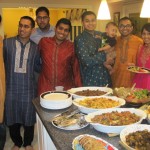
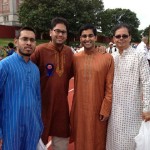
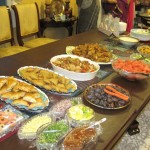
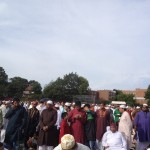
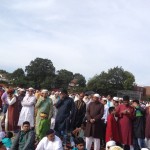
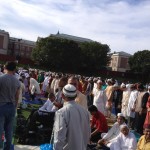




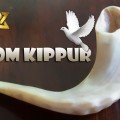











Follow Us